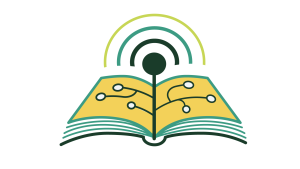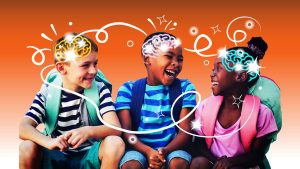
Ying Xu, PhD (Assistant Professor of Learning Sciences and Technology, University of Michigan), and moderator Naomi Baron, PhD (Professor Emerita of Linguistics, American University), discuss developmental considerations for child readiness for AI chatbot interactions at #AskTheExperts webinar “AI and Children: Risks and Opportunities of the Enhanced Internet” on December 6, 2023.
Read the Video Transcript
[Dr. Naomi Baron]: When should kids start interacting with AI chat bots like Chat GPT? How would you – how would you advise parents and educators to go forward here?
[Dr. Ying Xu]: We could approach it from two perspectives, which are the developmental stages of the child and also the capability of the chatbot. So children are kind of naturally curious and they often always ask “why” questions, but their ability to ask “good” questions – which are questions that have meaningful answers – develops over time. So you could imagine the better a child can formulate a question, the more effective a chatbot carries it out. So now from the chatbot’s perspective, it is worth noting that ChatGPT in particular requires the user, at least as of now, to be at least 13 years old, with parental consent needed for those between 13 to 18. So ChatGPT might not be something that is designed for very young kids. But there are other chatbots like Amazon Echo Dot Kids version that are designed specifically for young children. Since smart speakers and other AI tools are already available and present in children’s homes, it could be quite difficult to strictly limit children’s access. So I believe that with the guidance and support from parents and other caring adults, it can be fine for even very young children to engage in asking questions through chatbots. However, it is very important for parents to be aware of the information provided by the chatbot and if necessary, rephrase or supplement it based on the child’s needs.
View the full webinar

AI and Children: Risks and Opportunities of the Enhanced Internet
Generative AI technologies like ChatGPT are changing the nature of online communications, work, creativity, and learning. What are the impacts to children’s social and cognitive development in this new, turbocharged Internet?
Naomi Baron, PhD
Professor Emerita of Linguistics, American University
Steven Vosloo, MCom
Digital Foresight and Policy Specialist, UNICEF
Ying Xu, PhD
Assistant Professor of Learning Sciences and Technology, University of Michigan
Christine Bywater, MA
Assistant Director, Center To Support Excellence in Teaching (CSET), Project Lead, CRAFT, Stanford Graduate School of Education
Tracy Pizzo Frey, MBA
Senior Advisor, Common Sense Media




